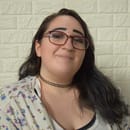Trigger warning for anti-LGBTQ+ slurs.
I’m not entirely sure when we as a society decided it was okay to start saying queer again. Whenever that was, it was too soon.
Personally, I like the term queer for myself. I think it encompasses the weird relationship I have with gender in addition to my sexual orientation. Some people in the community don’t like the term, and I get that. It’s not really used for hate as much as it used to be, but some people have still had bad experiences with it and don’t like it. If they choose not to identify with it, that’s perfectly fine and that’s their choice. If they do choose to identify with it, the same applies – it’s their choice and whatever they choose is fine.
But at what point did we decide that it was okay for those outside the community to say queer?
I’m not talking about calling people “queers”; I think people in general realize that’s not okay. I’m talking about referring to the LGBTQ+ community as a whole as queer.
For one of my research papers this semester, I’m looking at the lesbian community in Japan. And the number of papers I’ve seen that use the term queer to refer to the community is far too many. A lot of these papers are in the field of queer studies.
Let me spell this out. At. What. Fucking. Point. Did. We. Decide. It. Was. Okay. To. Use. Queer. In. An. Academic. Setting.
People say this kind of thing all the time in real life. It sucks, but I’m not surprised to hear people casually dropping the f-slur. But that’s from the assholes on the lacrosse team. I don’t expect that from academic writing.
Imagine, if you will, a field of research about lesbians called Dyke Studies. What about F****t Studies? How about T****y studies? Do any of those sound okay? Probably not, because they’re all slurs aimed at the community.
So why, then, is the slur “queer” allowed? Who decided that the world could claim that term?
We, as a community and as individuals, can decide when to reclaim a term. I have reclaimed queer. I have reclaimed dyke.
But if you’re not in the community, these words aren’t for you. Even for those in the community, these words can be a little fraught. I’m okay with being called queer. Dyke is a little more sensitive – there’s basically one person I’d be okay calling me that, and I don’t want to hear that word from anyone who isn’t a lesbian. Being called the f-slur isn’t something I’m really comfortable with, but sometimes a friend will call me that and I’m not going to get upset over it.
But if anyone who wasn’t a part of the community tried to use any of those words with me? I’d hate it. It doesn’t have to be aimed at me at all. It doesn’t have to be derogatory. It doesn’t have to have any sort of malice behind it.
Slurs are like that. They are hateful words. And regardless of the way they’re used, if they’re used by someone who isn’t in the community that that slur has traditionally been aimed at, it’s ultimately an expression of hate.
To some extent, intentions don’t matter. I don’t think people in the field of queer studies, for instance, have ill will towards the LGBTQ+ community; in fact, I would think that many of them identify as LGBTQ+ themselves. It is simply the use of a slur that is inherently hurtful, regardless of the intention. Especially in academia, where slurs do not belong.
And as a society, I don’t believe we’re ready use the term queer.



